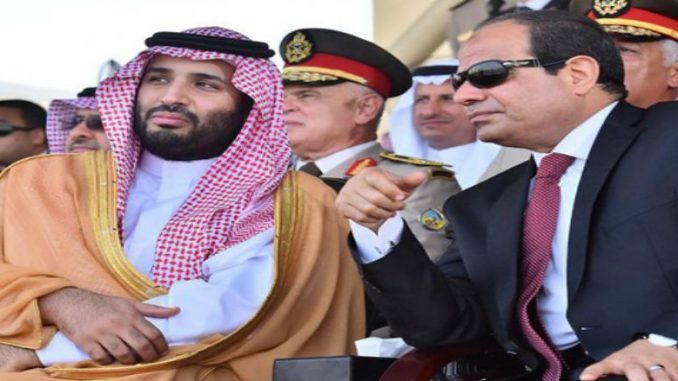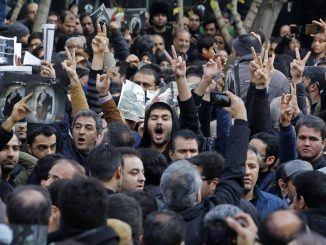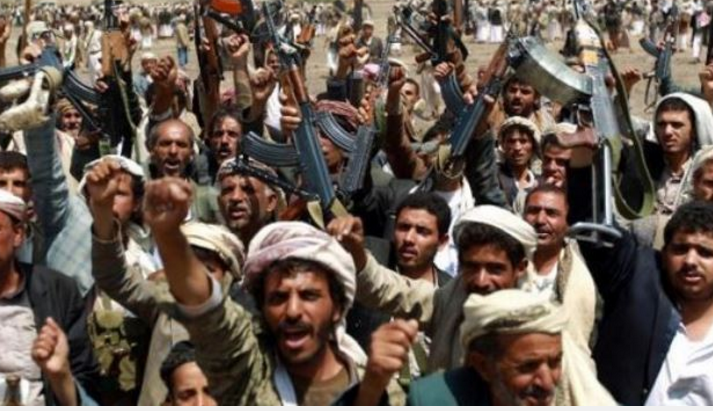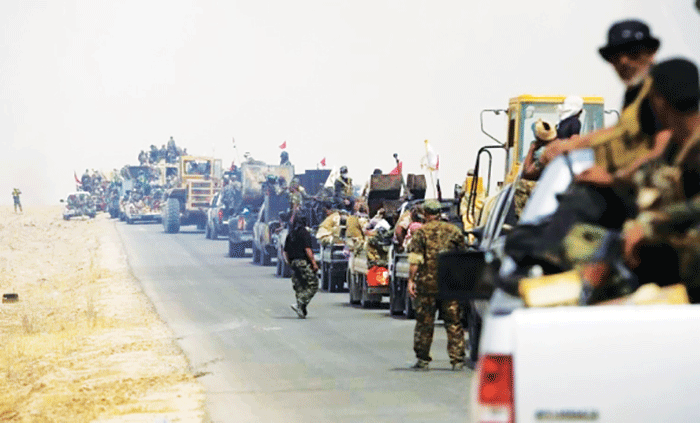
Egypt’s al-Sisi has pledged military support for Gulf Arab states if their security comes under threat, as reported by the state a state-owned newspaper, Al-Ahram.
“If the security of the Gulf is directly threatened, Egypt will mobilize its forces to support its brothers,” Sisi was quoted as saying in a meeting with the press in the Red Sea resort of Sharm el-Sheikh.
“Egypt stands body and soul by the side of our Gulf brothers,” he said, without specifying the source of any outside threat.
Al-Sisi reiterated Egypt’s readiness to confront any aggression if the security of the Arab Gulf is exposed to any threat.
He said,”If the Gulf security witnesses any danger or threat from any side, the entire Egyptian population, not only the president, will agree to send forces to repel aggression and support our brothers,” asserting that, “Egypt will not accept any aggression against Arab national security.”
Two years ago, Al-Sisi revealed the number of Egyptian forces operating outside the Egyptian territories, pointing out that Egypt is participating with elements of its naval forces in Bab AL-Mandab strait to secure navigation and the passage of ships to the Suez Canal, according to al-Wafd newspaper.
At that time, -Sisi said, “We have Air Force elements in Saudi Arabia, but we do not have any ground forces in any Arab country. All of our forces abroad work within the framework of the United Nations peacekeeping forces.”
Egypt’s air force has been participating in the Saudi-led military coalition against Houthi rebels in Yemen since the coalition was launched in March 2015, according to al-Ahram.
In January 2017, Egypt’s National Defense Council agreed in a meeting to extend the deployment of Egyptian Armed Forces units in the Red Sea and the Bab Al-Mandab strait.
Moreover, in April 2017, Brig.General.Ahmed Asiri, former Saudi Defense Minister’s adviser and spokesman for the Saudi-led coalition, said In a televised interview on al-Arabiya Saudi TV Channel, that Egypt had previously offered to send 40,000 soldiers to Yemen for protecting the Saudi-Yemeni border.
Asiri said, “Abdel Fattah al-Sisi offered the Saudi government and the coalition to send ground troops to Yemen but the coalition policy in Yemen does not allow the presence of any foreign ground troops on the Yemeni territory.”
He also commented on the number of the Egyptian forces participating in the Arab coalition supporting legitimacy in Yemen saying, “the Egyptian army currently cooperates in the naval and air efforts, but what we were talking about happened earlier (at the beginning of operations) was the participation of almost 30,000 to 40,000 Egyptian soldiers as ground troops.”
Saudi Arabia and the United Arab Emirates have pumped billions of dollars into Egypt’s economy since its military – then headed by Sisi – toppled the country’s first democratically elected president Mohamed Morsi in 2013.
The Gulf countries were on the top countries that opposed the Arab Spring as it threatens their thrones. Accordingly, supporting the military coup in Egypt was crucial to eliminate the emergence of a successful role model in the Middle East Region region that would encourage their public to revolt against them.
Along with the UAE, Bahrain and Saudi Arabia, Egypt severed diplomatic and economic relations with Qatar in June 2017, accusing it of links to extremist groups and being too close to Iran – charges Doha denies.
Shiite powerhouse Iran is Saudi Arabia’s main regional rival.



